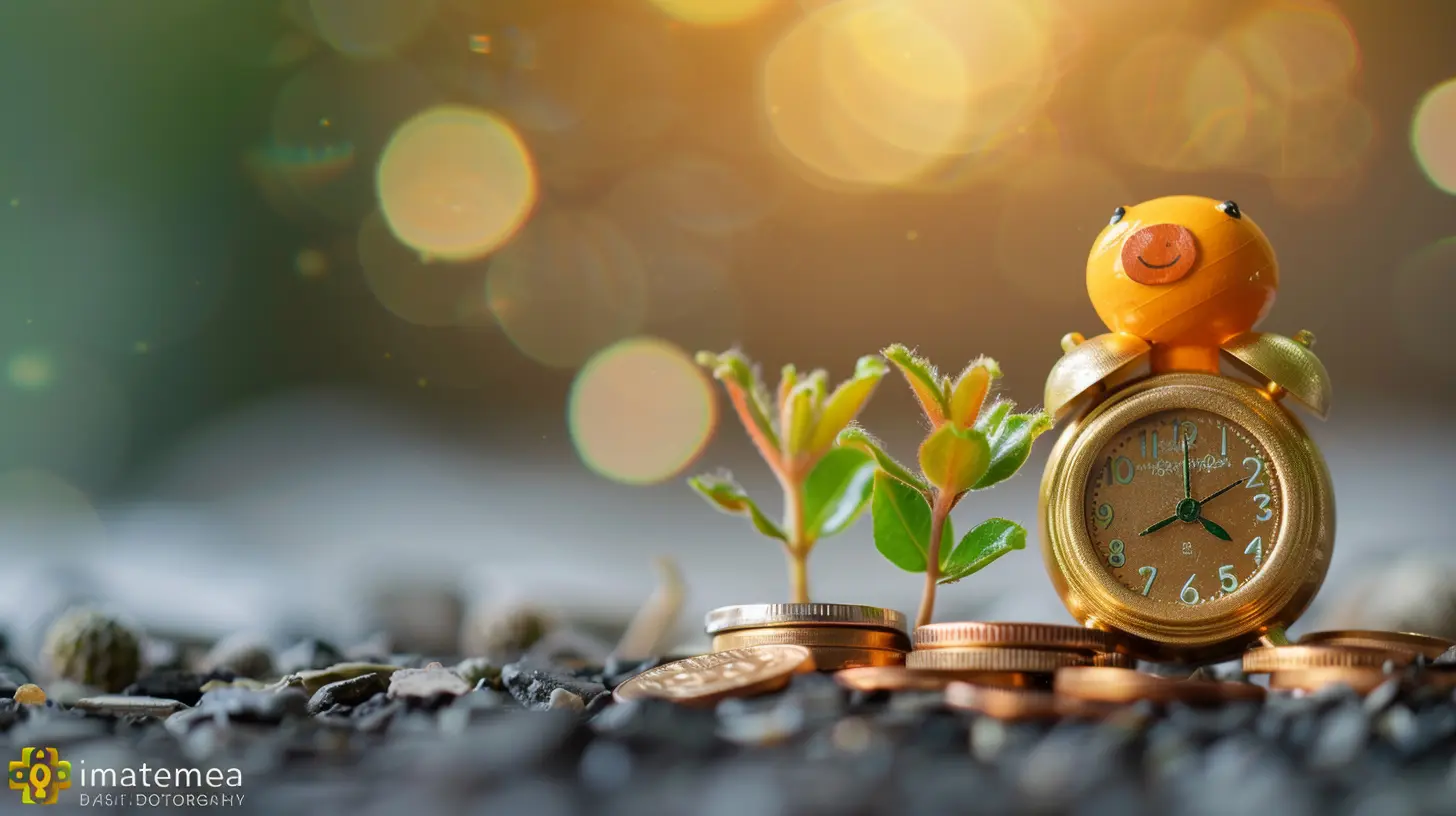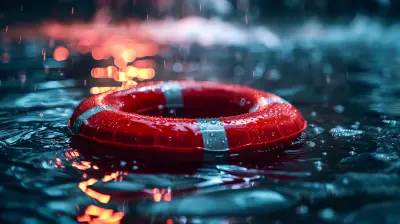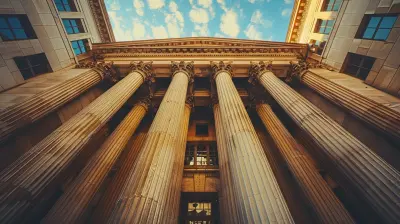The Importance of an Emergency Fund During Uncertain Times
30 September 2025
Let’s face it—life throws curveballs when we least expect them. Maybe your car breaks down the same week your employer decides to downsize. Or suddenly, a medical bill lands in your mailbox that’s bigger than your rent. Yikes. These are the moments when having an emergency fund isn’t just nice—it’s downright crucial.
If there’s one financial rule that never goes out of style, it’s this: Always have money set aside for the unexpected. But in uncertain times—like job market instability, economic downturns, or global pandemics—an emergency fund becomes more than just a financial safety net. It's your peace of mind. It's your stress buffer. It's your financial parachute when things start to fall.
In this article, we’ll take a deep dive into why an emergency fund is so important, how much you really need, how to start one even if you’re living paycheck to paycheck, and how it gives you more than just money—it gives you freedom.
What is an Emergency Fund, Really?
Let’s start with the basics.An emergency fund is a stash of cash you’ve specifically set aside for, well… emergencies. Not for that tropical vacation you’ve been dreaming about or the latest iPhone. This fund is strictly for life’s “Uh-oh” moments—unexpected medical expenses, sudden job loss, surprise car repairs, or even emergency travel.
Think of it as your financial fire extinguisher. You hope you don’t have to use it often, but when a fire breaks out, you’ll be grateful it’s there.
Why Are Emergency Funds So Critical During Uncertain Times?
Let’s break it down. Uncertain times = higher risk. And when risk increases, your financial strategy should include some form of insurance against the unexpected. That’s where your emergency fund comes in.Here are some reasons why it’s so vital:
1. 🌪 Economic Downturns Can Come Out of Nowhere
Remember the 2008 financial crisis? Or how COVID-19 turned the world upside down overnight? These events weren’t marked on anyone’s calendar. Jobs vanished, markets tanked, and countless families were left scrambling.When the economy is shaky, job security isn’t a given. And unemployment benefits might not cut it. An emergency fund bridges the gap between your last paycheck and your next one.
2. 😷 Health Emergencies Don’t Wait for Payday
Unexpected medical bills are one of the top causes of debt in many households. Even with insurance, co-pays, deductibles, and uncovered treatments can drain your bank account fast.With an emergency fund, you’re not choosing between your health and your rent. You’ve got breathing room.
3. 🚗 Life Has a Way of Breaking Things
Your fridge dies in the middle of summer. Your dog gets sick. Your car decides it’s had enough… right before your road trip.These aren't “if” events—they’re “when” events. Having a financial cushion means you can deal with them without blowing up your budget or racking up credit card debt.
4. 😬 Credit Isn’t a Backup Plan
Sure, credit cards are handy, but relying on them for emergencies can quickly spiral into high-interest debt. It’s like putting out a fire with gasoline.With emergency savings, you can handle surprises without borrowing money. That means no interest, no stress, and no snowballing debt.
How Much Should You Save?
This is the million-dollar question—except, hopefully, it doesn’t cost you that much.Financial gurus often recommend saving 3 to 6 months’ worth of essential living expenses. But that’s just a guideline. Your ideal emergency fund depends on:
- Your monthly expenses (not just rent, but utilities, groceries, etc.)
- Job security (steady government job vs. freelance work)
- Dependents (kids, elderly parents, pets)
- Health and insurance coverage
Rule of Thumb 👣
If you’re just starting out, $500–$1,000 can cover basic emergencies like car repairs or minor medical bills. Aim for that first.Then, aim to build up 3 months of expenses. Eventually, try to hit 6 months or even a year if your income is unstable.
Remember, an emergency fund isn’t built overnight. It’s a slow climb—but every dollar counts.
Where Should You Keep It?
Under your mattress? Please no.Your emergency fund should be easy to access—but not too easy. You don’t want to be tempted to dip into it for non-emergencies.
Best Options:
- High-Yield Savings Account (HYSA): Offers better interest rates than regular savings, and your money is still easy to withdraw.- Money Market Account: Similar to HYSAs but may come with a higher balance requirement.
- Separate Bank Account: Keeping it separate from your checking account helps resist those late-night impulse purchases.
Don’t invest this money in stocks or real estate. It’s not for growing wealth—it’s for protecting what you’ve already got.
How to Build an Emergency Fund From Scratch
Let’s be real—saving money isn’t easy, especially when bills are already breathing down your neck. But it’s doable. One step at a time.1. Start Small, But Start Now
Even $10 a week adds up. The trick is to start the habit. Set up automatic transfers to your savings account. Treat it like a bill you have to pay—except this one, future-you will thank you for.2. Trim the Fat (Just a Little)
Look through your expenses. Is there a subscription you forgot about? Can you cook at home a couple more times a week? Redirect those dollars into your emergency fund.Cutting back doesn’t have to feel like punishment. Think of it as buying peace of mind.
3. Use Windfalls Wisely
Got a tax refund, bonus, or birthday check from Grandma? Put part (or all!) of it into your emergency fund. Windfalls are perfect for giving your savings a healthy boost.4. Side Hustle for Safety
If you’ve got the time and energy, a side gig can fast-track your emergency fund. Drive for a ride-share app, freelance, tutor online—whatever works for you.Remember, this isn’t forever. It’s just until your emergency fund hits that comfortable level.
What Counts as a "Real" Emergency?
This is key. If you dip into your emergency fund for every minor inconvenience, it won’t be there when the big stuff hits.Ask yourself these questions before withdrawing:
- Is it unexpected?
- Is it necessary?
- Is it urgent?
If the answer is yes to all three, go ahead. But if it’s more of a want (say, concert tickets or a spontaneous weekend getaway), back away slowly.
Your emergency fund isn’t a slush fund—it’s your financial seatbelt.
How an Emergency Fund Affects Your Mental Health
Let’s talk about the emotional side of money. Because believe it or not, an emergency fund doesn’t just protect your wallet—it protects your peace of mind.When you have savings set aside, you sleep better. You stress less. You make smarter decisions because you’re not acting out of panic or desperation.
It's like having a personal bodyguard for your sanity. And in uncertain times, that mental safety net is just as important as the financial one.
You’re not constantly waiting for the other shoe to drop. You know you can handle it if it does. That kind of confidence? Priceless.
Long-Term Benefits of Having an Emergency Fund
Still not convinced? Here’s a quick hit list of long-term perks a healthy emergency fund brings to the table:- 🏡 Avoids debt spirals: No need to rely on credit cards or payday loans.
- 💳 Improves credit score: Less credit utilization = better score.
- 🧠 Lowers stress: Financial anxiety takes a toll—emergency funds ease the burden.
- 🔓 Increases freedom: Don’t like your job? Emergency fund gives you the option to walk away.
- 💼 Supports career choices: Want to switch careers, start a business, or go back to school? Emergency savings buy you time and flexibility.
Final Thoughts: A Little Cushion Goes a Long Way
If you take away one thing from this article, let it be this: you don’t need to be rich to build an emergency fund. You just need to start.Even a small cushion can make the difference between calm and chaos when life throws you a curveball. It’s not about having thousands saved up overnight. It’s about making consistent, intentional choices that prioritize future-you.
Because in uncertain times—and let’s be honest, when aren’t times uncertain?—an emergency fund isn’t optional. It’s essential.
So grab your budget, open that savings account, and begin. Your future self will be so glad you did.
all images in this post were generated using AI tools
Category:
Emergency FundAuthor:

Knight Barrett
Discussion
rate this article
1 comments
Romina Sweeney
Building an emergency fund is crucial for financial stability during unpredictable situations.
September 30, 2025 at 3:35 AM

Knight Barrett
Absolutely! An emergency fund provides security and peace of mind, ensuring you're prepared for life's unexpected challenges.


